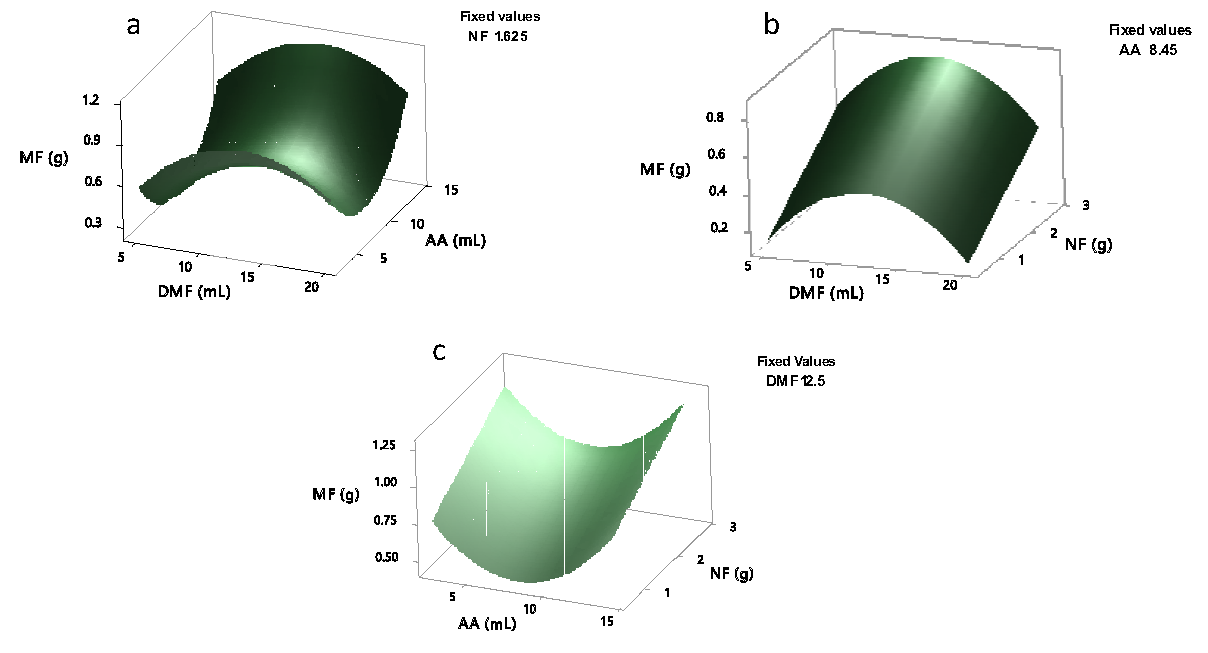 |
|
Agave fructans (agavins) are fructose polymers that possess β (2-1) and β (2-6) bonds. Thus, they cannot be hydrolyzed by digestive enzymes and are hence classified as indigestible oligosaccharides. These molecules have gained importance due to their various applications, one of which is their prebiotic capacity. They have also been used as wall material, encapsulating bioactive compounds and releasing them at specific sites. To determine the degree of polymerization of the native fructans, FTIR, 1H NMR, and MALDI–TOF-MS were used for characterization. They were subsequently modified via acetylation with acetic anhydride and tested as a carbon source with S. boulardii, which was used as a probiotic. This process helped to evaluate whether this modification affected the polysaccharide’s fermentability. The fructans used had a DP ranging from 4–10. Acetylation was performed with a change in functional groups (C = O) in the 1700–1750 cm-1 region, indicating that reaction was successful. Furthermore, yeast cell development with modified agave fructans (7.32 log10 CFU/mL and native agave fructans (7.09 log10 CFU/mL) indicated that the compound's fermentation was unaffected.
Keywords: Agave angustifolia Haw, fructans, acetylation, fermentation
.
|
|
 |

